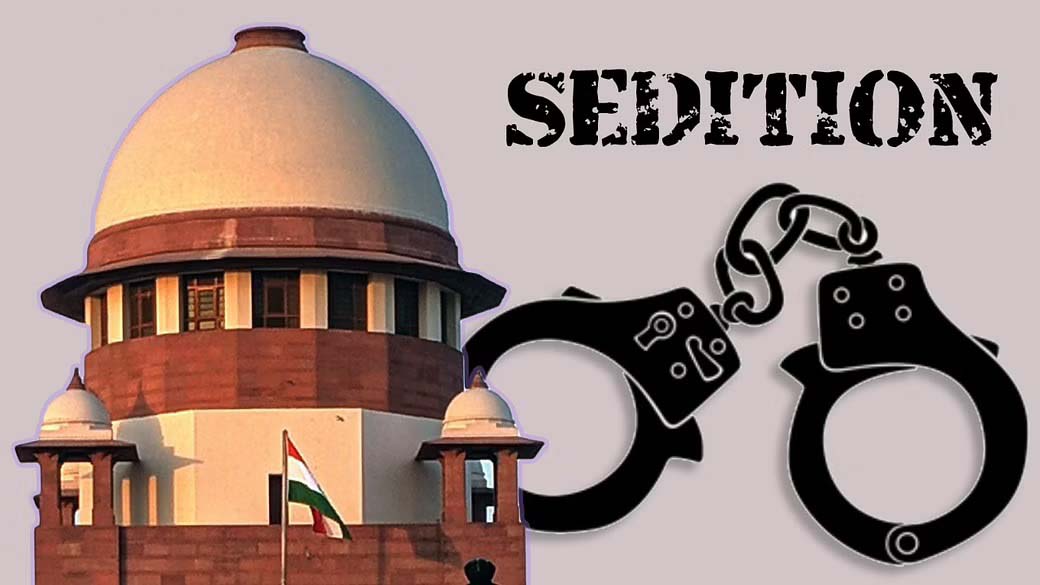Sedition law: Why India should break from Britain’s abusive legacy

Britain’s legacy in India consists of abusive legal guidelines to suppress any competition to colonial rule. Chief amongst the ones is sedition, the regulation utilized by the British to imprison Indian nationalists consisting of Mohandas Gandhi and Bal Gangadhar Tilak. While acting in courtroom docket in 1922, Gandhi known as the regulation the “prince some of the political sections of the Indian Penal Code designed to suppress the freedom of the citizen”. He changed into sentenced to 6 years in prison.
A century later, and seventy five years after Independence, this regulation stays a effective device utilized by the government to criminalise dissent and arrest non violent critics of the authorities. The Bharatiya Janata Party authorities led with the aid of using Prime Minister Narendra Modi is wearing out an escalating crackdown on civil society, focused on activists, journalists, college students, academics, individuals of non secular minorities, and non violent protesters the use of sedition and different draconian legal guidelines.
Parliament must overturn this regulation in its consultation that starts offevolved on July 18. The Supreme Court already has this regulation below consideration. If parliament does now no longer act, it will likely be as much as the Supreme Court to rule at the constitutionality of the regulation and make sure India’s compliance with worldwide human rights regulation, which the sedition regulation it appears that evidently violates.
Exciting disaffection
India’s sedition regulation, phase 124A of the Indian Penal Code, is absurdly broad, making it a crime to “bring, or try to bring, into hatred or contempt, or excite disaffection towards, the Government.” “Disaffection” is described to include “disloyalty and all emotions of enmity.” The most punishment is lifestyles in prison.
While the UK repealed its personal sedition regulation in 2009, in India its use is at the rise.
Sedition instances have improved with the aid of using 28% below the Modi authorities, in line with a database compiled with the aid of using information internet site Article-14. Since 2014, Indian government have filed extra than 500 sedition instances regarding extra than 7,000 humans. According to Article-14, 149 humans have confronted sedition expenses surely for making comments approximately Modi that have been taken into consideration essential or derogatory.
While the courts in the end push aside maximum sedition instances, the procedure itself turns into the punishment. In one example, 3 Kashmiri Muslim college students spent almost six months in prison for allegedly celebrating Pakistan’s win over India in a cricket suit in October 2021.
Rampant misuse of sedition led the Supreme Court in May 2022 to efficiently halt all use of the regulation in an period in-between ruling. The courtroom docket stated the regulation changed into “now no longer in song with the modern social milieu, and changed into supposed for a time whilst this united states changed into below the colonial regime” – and the Modi authorities agreed. However, the authorities requested the courtroom docket for time to “re-study and reconsider” the regulation. It did now no longer, however, provide readability on what that supposed or the timeline for its choice.
In a 2015 choice preserving unconstitutional a extensively worded provision of India’s Information Technology Act, phase 66A, the Supreme Court said that “[m]ere dialogue or maybe advocacy of a selected reason howsoever unpopular, is on the heart” of the proper to freedom of speech, and the authorities have to display a proximate connection among the speech it seeks to limition and the safety of public order”. The equal is genuine of sedition.
While the Indian Supreme Court upheld the constitutionality of the sedition regulation in 1962, it did so with the aid of using ignoring the very language of the regulation, preserving that it have to observe handiest to “acts regarding purpose or tendency to create disorder, or disturbance of regulation and order, or incitement to violence”. In the 60 years since, the police have in large part neglected that ruling, and feature again and again arrested non violent critics of the authorities. The ineffectiveness of the courtroom docket’s try to restriction the attain of the regulation makes clean that complete repeal is essential.
The regulation additionally violates article 19 of the International Covenant on Civil and Political Rights, which India ratified in 1979. Under the covenant, regulations on expression have to be narrowly drawn on concepts of necessity and proportionality to curtail speech as low as possible.
International experience
Courts in numerous former British colonies have already dominated that colonial-generation sedition legal guidelines violate the proper to freedom of expression. In 2010, the Constitutional Court in Uganda struck down the regulation as unconstitutional. In 2018, the Community Court of Justice of the Economic Community of West African States (higher called the ECOWAS Court) held that the offense of sedition in Gambia violated the proper to freedom of expression below African local and worldwide regulation.
The Court of Appeal in Nigeria, whilst ruling the sedition regulation unconstitutional in 1985, stated: “Let us now no longer lessen from the liberty won from our colonial masters with the aid of using resorting to legal guidelines enacted with the aid of using them to match their purpose.”
